#kidney stone surgeon in bhopal
Text
Kidney Cancer Care in Bhopal - Dr Neeraj Gupta

Looking for the best kidney cancer care in Bhopal, Dr. Neeraj Gupta stands out as a leading specialist. With a focus on cutting-edge treatments and compassionate patient support, Dr. Neeraj Gupta offers top-tier care for individuals seeking kidney cancer treatment in Bhopal. Trust in his expertise for effective and holistic care.
#kidney stone treatment in bhopal#best doctor for kidney stone treatment in bhopal#urologist for kidney stone treatment in bhopal#kidney stone surgeon in bhopal
0 notes
Text
Urinary Tract Infection | Best Urologist Bhopal
Introduction
Urinary tract infection (UTI) is a type of infection that can occur in any part of the urinary system. This includes the kidneys, ureters, bladder, and urethra. UTI is more common in women than men, and it’s estimated that about 50% of women will experience at least one UTI during their lifetime.
There are many different factors that can contribute to a UTI, but the most common cause is bacteria that enters the urinary tract through the urethra and begins to multiply. This can happen when there is poor hygiene or when sexual intercourse introduces new bacteria into the urinary system. Other factors that may increase your risk of UTI include pregnancy, diabetes, and a history of UTIs.

If you think you might have a UTI, it’s important to see a best urologist Bhopal so that you can get treated before the infection spreads to your kidneys. Treatment for a UTI typically involves antibiotics, and most people will start feeling better within a few days of beginning treatment.
What is a urinary tract infection?
A urinary tract infection (UTI) is an infection in any part of your urinary system — your kidneys, ureters, bladder, and urethra. Most infections involve the lower urinary tract — the bladder and the urethra. Women are at greater risk than men for developing a UTI because of their anatomy.
The main symptom of a UTI is a strong, persistent urge to urinate. You may also have cloudy urine, strong-smelling urine, and/or pain or burning with urination. If the infection spreads to your kidneys, you may experience back pain, nausea, vomiting, or fever.
UTIs are usually treated with antibiotics. It’s important to finish all of the medication as prescribed even if your symptoms go away. If left untreated, a UTI can lead to serious kidney damage.
Causes of urinary tract infection
There are a number of things that can cause urinary tract infections, but the most common cause is bacteria. Bacteria can enter the bladder through the urethra and begin to multiply. This can happen when the area around the urethra is not cleaned properly, or if there is already an infection in another part of the body that spreads to the bladder. Other causes of urinary tract infections include:
-Dehydration: When your body doesn’t have enough fluids, your urine becomes more concentrated and provides a good environment for bacteria to grow.
-Certain medications: Some medications, such as diuretics, can increase your risk of developing a urinary tract infection.
-Kidney stones: Stones in the kidney can block the flow of urine and trap bacteria in the urinary tract.
-Pregnancy: The growing uterus puts pressure on the bladder, which can make it difficult to fully empty your bladder and increases your risk of developing a urinary tract infection.
Symptoms of urinary tract infection
A urinary tract infection (UTI) is an infection that can occur anywhere along the urinary tract, which includes the kidneys, ureters, bladder, and urethra. While UTIs are more common in women than men, anyone can develop a UTI.
The most common symptom of a UTI is a burning sensation when urinating. Other symptoms may include:
- Frequent urge to urinate
- Pain or pressure in the lower abdomen
- Blood in the urine
- cloudy or foul-smelling urine
- pelvic pain (in women)
Treatment of urinary tract infection
Urinary tract infection (UTI) is a common infection that can affect women of all ages. The symptoms of a UTI can vary from person to person, but often include a burning sensation when urinating, the need to urinate frequently, and cloudy or bloody urine.
If you think you might have a UTI, it's important to see your nephrologist in Bhopal so that you can get started on the right treatment. In most cases, UTIs can be treated with antibiotics. However, some women may require more aggressive treatment, such as hospitalization and intravenous antibiotics.
If you have recurrent UTIs, your healthcare provider may recommend prophylactic antibiotics to help prevent future infections. Additionally, there are certain lifestyle changes that can help reduce your risk of developing a UTI, such as drinking plenty of fluids and urinating promptly after sexual intercourse.
Prevention of urinary tract infection
Urinary tract infections (UTIs) are preventable. There are many things you can do to reduce your risk of getting a UTI, including:
-Drinking plenty of fluids. Drinking water helps flush out bacteria that may cause UTIs.
-Urinating frequently. urinating helps expel bacteria from the urinary tract.
-Wiping from front to back after using the restroom. This helps prevent bacteria from the anus from spreading to the urethra.
-Avoiding diaphragms and spermicide for birth control. These can increase the risk of UTIs.
-Choosing shower over baths. Baths can increase the risk of UTIs because they can introduce new bacteria into the urinary tract.
Conclusion
Urinary tract infections are a common problem for women, but there are ways to prevent them. The most important thing is to drink plenty of fluids and urinate frequently to flush out the bacteria that can cause an infection. You should also avoid using harsh soaps or douching, which can irritate the delicate tissues in the urinary tract. If you do get an infection, it's important to see a best kidney doctor Bhopal right away so that it can be treated before it causes serious problems.
#Kidney Doctor In Bhopal#Kidney Stone Surgeon Bhopal#Kidney Transplant Bhopal#Kidney Stone Surgeon Near Me Bhopal#Kidney Specialist Bhopal#Nephrologist In Bhopal#Best Urologist Bhopal
0 notes
Text
How Kidney Stone Specialist Treat Kidney Stone Attack?
If you are suffering from a kidney stone attack, then you need to visit the right kidney stone specialist. Most of the patients have benefited from seeing a highly skilled specialist when it comes to determining cause and therapy for stone. Since stones are widespread and shared all over the world, most of the people prefer primary care physician. The physician will instruct about fluid intake and diet for the prevention of stones formed without complication.
When Is Help Needed?
Within five years, more than 40-50% of the patient felt a recurrence of the disease. For those reasons, seeing the best kidney transplant surgeons will potentially benefit the patient. The surgeon will determine the cause of kidney stones. There may be several kidney stone types, so as their cause. Thus, knowing the cause is critical for prevention and treatment, including medical management.
The main aim of the nephrologists or urologists is to focus more on the prevention of kidney stones. It is to ensure that no disease get's associated with the cause that worsens the condition.
Imaging Toolkit Used By Kidney Stone Specialist
Typically, a nephrologist or urologist conducts imaging during the appointment. It could be an X-ray or CT scan or ultrasound. Also, there will be urine analysis with a basic blood test. The urine collection provides useful information.
Comprehensive Treatment System
Once the type and cause of stone are determined, invasive treatment proceeds. The treatment includes urethroscopy, SWL, and shock wave lithotripsy and percutaneous nephrolithotomy. Also, other solutions can relieve the patient's kidney stone and make it pain-free.
If you are finding the best kidney specialist in Bhopal, then PARULKAR HOSPITAL is the best choice.
#kidney stone specialist#best kidney transplant surgeons#kidney specialist in bhopal#Kidney Disease Causes#kidney disease treatment#kidney disease stages#Chronic kidney disease
1 note
·
View note
Link
Kidney Stones are formed in the urinary tract due to crystallization of chemical compounds in the urine. PCNL is accepted standard of care for patients with kidney stones.
#Kidney Transplant Surgeon in Bhopal#Kidney Transplantation Surgery in Bhopal#Kidney Stone Surgeon in Bhopal
0 notes
Text
Kidney Specialist In Bhopal
A kidney specialist or often called as nephrologist is a specialist in internal medicine who has obtained extra training in the medical treatment of patients with kidney diseases.
He has been taught and qualified in kidney diseases, kidney transplantation, and dialysis therapy. The education qualifies the specialists to treat kidney diseases in an extensive approach, because kidney diseases can have an effect on the function of other body organs. These kidney specialists could further dedicate to pediatric nephrology (kidney diseases in children treatment) or adult nephrology.
Kidney specialists play an essential role in making decisions, in conjunction with patients and/or families, in relation to withholding or withdrawing dialysis. One of the kidney specialist or nephrologist's main activities is the utilization of the artificial kidney to treat patients with acute and chronic kidney failure.
This specialist does not surgically operate on the kidney; yet, he or she might need to perform a kidney biopsy by putting in a narrow needle through the body surface to the kidney, to find a sample of kidney tissue. A kidney specialist or nephrologist often witness patients who are being cared for by a doctor who operates kidney surgical procedure.
Your specialist of nephrology will make clear some points to you if your condition necessitates either dialysis or transplantation. If you accept a kidney transplant, your specialist or nephrologist might take part in your care later to assist deal with your blood pressure, the interactions of medications, and other problems that can come up.
A patient with the existence of protein or blood in the urine, acute high blood pressure, kidney stones, or the expansion of renal deficiency or kidney failure might obtain a referral to a kidney specialist from a family physician, another internist, a surgeon, an obstetrician or a gynecologist.
Many people with diabetes do not have right of entry to good clinical guardianship, urine examination to identify early kidney damage and dialysis or transplantation when the kidneys do fail. Early referral to kidney specialists improves survival as the kidneys fail.
If you want to get some excellent resources on kidney, please visit my site on You and Your Kidney. https://agnitohealth.com/kidney-specialist-in-bhopal
#kidney specialist in bhopal#kidney stone specialist in bhopal#kidney stone specialist bhopal#best kidney specialist bhopal#best kidney doctor bhopal
0 notes
Text
Kidney Stone Treatment in Bhopal - Dr Neeraj Gupta

Are you suffering from kidney stones Meet Dr. Neeraj Gupta. kidney stone treatment in Bhopal. options may include lifestyle changes, medication to relieve symptoms, dietary adjustments to prevent future stones, and in some cases, procedures like shock wave lithotripsy, ureteroscopy, or surgery to remove or break up larger stones.
#bets kidney stone surgeon in bhopal#kidney stone diagnosis in bhopal#kidney stone specialist in bhopal
0 notes
Text
Why Senior Consultant Urologist, Dr. Santosh Agrawal Is One Of The Best Urologist In Bhopal
Dr. Santosh Agrawal is one of the best urologist Bhopal that can be trusted for all your urological needs. Dr. Santosh Agrawal is a distinguished Consultant Urologist and Head of Department and Chief Kidney Transplant Surgeon at Bansal Hospital Bhopal. He has performed more than 150 Kidney Transplants, over 1,000 Cysts, Bladder Cancer Screenings, Saline Scavenging Techniques for Radical Prostatectomy, Vocal Cord Surgery, Congenital Anomalies of the Urethra and Penile Surgery.
If you are looking for a reliable and experienced urologist in Bhopal, then you can book an appointment with Dr. Sanotsh Agrawal at his clinic or hospital.

Experience
As a senior consultant urologist, Dr. Santosh Agrawal has over 15 years of experience in the field of urology. He has worked at some of the best hospitals in Bhopal and has gained a vast amount of knowledge and experience in the field. He is an expert in treating various urological conditions such as urinary tract infections, kidney stones, prostate problems, male infertility, and erectile dysfunction. He has also gained extensive experience in performing surgeries such as prostatectomy, cystectomy, and ureteric stenting. Dr. Santosh Agrawal is highly skilled and knowledgeable in his field and is considered to be one of the best urologists in Bhopal.
Treatment given
As a senior consultant urologist, Dr. Santosh Agrawal is one of the best urologists in Bhopal. He has been providing his patients with the highest quality of care and treatment possible.
He has successfully treated many patients with various urological conditions such as kidney stones, urinary tract infections, prostate problems, and male infertility.
Dr. Agrawal’s unique approach to patient care ensures that each patient receives individualized attention and treatment. He takes the time to get to know his patients and their medical history so that he can provide them with the most effective care possible.
His compassionate nature makes him a great doctor to consult for any urological problem. If you are looking for the nephrologist in Bhopal, look no further than Dr. Santosh Agrawal.
#Kidney Doctor In Bhopal#Kidney Stone Surgeon Bhopal#Kidney Transplant Bhopal#Kidney Stone Surgeon Near Me Bhopal#Kidney Specialist Bhopal#Nephrologist In Bhopal#Best Urologist Bhopal
0 notes
Text
All About Prostate Surgery By Urologist In Bhopal
When it comes to prostate surgery, there are a lot of things that men don’t know. And that’s understandable, because it’s not a topic that is often talked about. But it’s important to be informed about all of your options and what to expect before making a decision about your treatment. In this blog post, we will explore what you need to know about prostate surgery. We will discuss the different types of surgery, the risks and side effects, and the recovery process. We will also provide some resources for further reading.
What is prostate surgery?
Prostate surgery is a common treatment for prostate cancer. The prostate is a small gland that makes semen and is located in front of the rectum. The most common type of prostate surgery is a radical prostatectomy, which involves removing the entire prostate gland and some of the tissue around it. This type of surgery usually requires a hospital stay of several days. Other types of prostate surgery include transurethral resection of the prostate (TURP) and laser ablation of the prostate (LAP).
What are the different types of prostate surgery?
There are four main types of prostate surgery:
1. Transurethral resection of the prostate (TURP): This is the most common type of prostate surgery. It involves removing part of the prostate through the urethra (the tube that carries urine out of the body). TURP is usually done as an outpatient procedure, which means you can go home the same day.
2. Open prostatectomy: This type of surgery involves making an incision in your lower abdomen and removing the prostate through this opening. Open prostatectomy can be done as either an open or laparoscopic procedure.
3. Radical prostectomy: This is the most extensive type of prostate surgery and involves removing the entire prostate, along with surrounding tissue and lymph nodes. Radical prostectomy can be done as either an open or laparoscopic procedure.
4. Transurethral microwave thermotherapy (TUMT): This is a newer, minimally invasive treatment option for men with small- to medium-sized prostates. TUMT uses microwaves to heat and destroy tissue in the prostate.
Who is a candidate for prostate surgery?
A man with an enlarged prostate gland may be a candidate for surgery to remove the prostate. The decision to have surgery is generally made after other treatments, such as medication and watchful waiting, have failed. Surgery is also an option for men who have cancer that has spread outside the prostate.

Robotic assisted laparoscopic radical prostatectomy (RALP) is the most common type of surgery used to remove the entire prostate. This procedure is less invasive than traditional open surgery and allows for a quicker recovery. During RALP, the surgeon makes several small incisions in the lower abdomen and inserts a thin tube with a camera attached (laparoscope) through one of these incisions. The surgeon then uses robotic arms to remove the prostate.
If you are considering surgery to remove your prostate, it is important to discuss all of your options with your best urologist Bhopal. You should also be aware of the potential risks and complications associated with any surgical procedure.
What are the risks and complications of prostate surgery?
There are a number of risks and complications associated with prostate surgery, which can include erectile dysfunction, urinary incontinence, and bowel problems. While these complications are typically not life-threatening, they can be very bothersome and have a significant impact on quality of life. In some cases, more serious complications such as infection or bleeding can occur. It is important to discuss all of the potential risks and complications with your doctor before undergoing surgery.
What are the benefits of prostate surgery?
When it comes to prostate surgery, there are a lot of things that you need to take into consideration. This includes the type of surgery that you want, the benefits of the surgery, and the risks associated with the surgery.
With any kind of surgery, there are always going to be some risks involved. However, the risks associated with prostate surgery are relatively low. The most common complications from this type of surgery are urinary incontinence and erectile dysfunction. These complications can usually be treated and are not permanent.
There are two main types of prostate surgery: radical prostatectomy and transurethral resection of the prostate (TURP). Radical prostatectomy is the more invasive of the two surgeries and involves removing the entire prostate gland. TURP is less invasive and only removes a portion of the gland. Both surgeries have their own set of risks and benefits that you will need to discuss with your doctor before making a decision.
The benefits of prostate surgery can vary depending on which type of surgery you have. For example, radical prostatectomy can offer a cure for prostate cancer if it is caught early enough. TURP can improve urinary symptoms such as frequency, urgency, and weak stream. It can also reduce the risk of urinary retention or incontinence in some cases. In addition, both types of surgeries can help to improve sexual function in some men.
Prostate surgery is not right for everyone though and you will need
How to prepare for prostate surgery
Many men dread the thought of prostate surgery, but it is often a necessary procedure to treat an enlarged prostate. If you have been diagnosed with an enlarged prostate, your doctor may recommend surgery to remove part or all of the prostate gland.
The most common type of prostate surgery is a radical prostatectomy, which involves removing the entire prostate gland and surrounding tissue. This surgery is usually performed as open surgery, meaning that the surgeon will make an incision in your lower abdomen to access the prostate. In some cases, laparoscopic surgery may be used, which involves making small incisions in your abdomen and inserting special instruments to remove the prostate.
Radical prostatectomy is a major surgery with a long recovery time. You can expect to stay in the hospital for several days after the procedure and then recover at home for several weeks. During this time, you will likely experience some urinary incontinence and sexual dysfunction. However, these side effects are usually temporary and will improve over time.
To prepare for your radical prostatectomy, you should:
-Talk to your surgeon about what to expect during and after the surgery.
-Arrange for someone to drive you home from the hospital after the procedure.
-Make sure you have someone who can help take care of you at home during your recovery.
-Stop taking any medications or supplements that could increase bleeding during surgery.
-Avoid eating or drinking anything after midnight on
Conclusion
Prostate surgery is a big decision, and one that shouldn't be taken lightly. But if you're facing prostate cancer, it may be the best option for you. Be sure to talk to your nephrologist in Bhopal about all the risks and benefits before making a decision, and don't hesitate to get a second opinion if you're unsure. With the right support team in place, you can get through this surgery and come out the other side healthy and cancer-free.
#best urologist bhopal#Nephrologist In Bhopal#Kidney Specialist Bhopal#Kidney Stone Surgeon Near Me Bhopal#Kidney Transplant Bhopal#Kidney Stone Surgeon Bhopal#Kidney Doctor In Bhopal
0 notes
Text
How to Remove Kidney Stone Without Surgery?
Kidney stones are a common problem, affecting around 6 in 10 people. They can cause severe pain and often require treatment. But there are ways to remove kidney stones without surgery, and in this article we'll explore some of the options available.
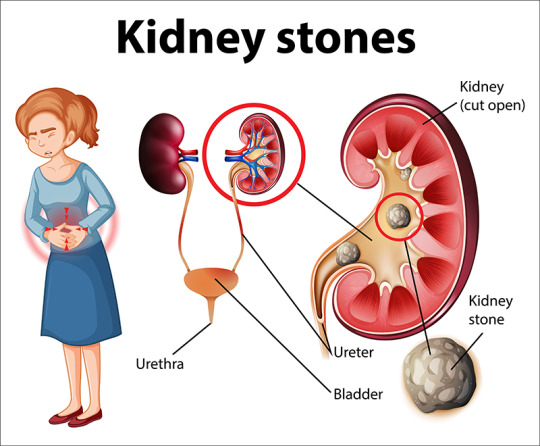
Kidney stones overview
Kidney stones are one of the most common disorders of the urinary tract. They occur when certain substances build up in the urine and form crystals. Kidney stones can be very painful and may require treatment. If you have a kidney stone, talk to your best kidney stone surgeon in bhopal about these nonsurgical treatment options.
There are several different types of kidney stones. The most common type is made of calcium. Other types include struvite, uric acid, and cystine.
Kidney stones often have no symptoms until they start to move down the ureter (the tube that carries urine from the kidney to the bladder). When this happens, they may cause:
- Severe pain in the abdomen, groin, or back
- Blood in the urine
- Nausea and vomiting
- Fever and chills
If a stone becomes stuck in the ureter, it can block the flow of urine and cause an infection. This can lead to kidney damage or failure.
What causes kidney stones?
Kidney stones are a common condition that can cause a lot of pain. They occur when there is a build-up of minerals in the kidneys, which can form into crystals. Kidney stones can be caused by many different things, including dehydration, certain medical conditions, and certain medications. Treatment for kidney stones usually involves drinking plenty of fluids and taking pain medication. In some cases, surgery may be necessary to remove the stones.
How to remove kidney stones without surgery
Kidney stones are a common problem that can cause a lot of pain and discomfort. They are usually treated with surgery, but there are ways to remove them without surgery.
There are several methods that can be used to remove kidney stones without surgery. One method is extracorporeal shock wave lithotripsy (ESWL). This involves using sound waves to break up the kidney stones. The pieces of the kidney stone are then passed through the urinary system.
Another method is ureteroscopy. This involves inserting a small scope into the urethra and then passing it through the urinary system until it reaches the kidney stone. Once the scope is in place, a small laser is used to break up the kidney stone. The pieces of the stone are then passed through the urinary system.
If you have a kidney stone, talk to your best urologist in Bhopal about these nonsurgical treatment options.
When to see a doctor for kidney stones
Kidney stones are a common problem that can be extremely painful. They occur when there is a build-up of minerals in the kidneys, which can form hard, small lumps.
There are a number of ways to treat kidney stones, but in some cases, surgery may be required. If you think you may have kidney stones, it is important to see a doctor so that they can diagnose and treat the problem.
Conclusion
If you have kidney stones, there are a number of ways to remove them without surgery. You can try natural remedies like drinking plenty of fluids, eating certain foods, and taking supplements. You can also try medical treatments like shock wave therapy or extracorporeal shock wave lithotripsy. Talk to your best nephrologist In Bhopal about which treatment is right for you.
#Kidney Doctor In Bhopal#Kidney Stone Surgeon Bhopal#Kidney Transplant Bhopal#Kidney Stone Surgeon Near Me Bhopal#Kidney Specialist Bhopal#Nephrologist In Bhopal#Best Urologist Bhopal
0 notes
Text
Pros And Cons Of Laparoscopic Urology Surgery – Best Urologist In Bhopal
Laparoscopic urology surgery is a type of minimally invasive surgery. It uses small incisions and special instruments to treat conditions of the urinary tract and reproductive organs. This surgery has many benefits, including less pain and scarring, shorter hospital stays, and quicker recoveries. If you are considering this type of surgery, be sure to consult with a laparoscopic & Best Urologist Bhopal to see if it is right for you.

Pros and cons of laparoscopic urology surgery
Laparoscopic urology surgery is a minimally invasive surgical procedure that is used to treat various urological conditions. The surgery is performed through small incisions in the abdomen and requires only a short hospital stay. Although laparoscopic urology surgery has many benefits, there are also some potential risks and side effects associated with the procedure. Here, we will discuss the pros and cons of laparoscopic urology surgery so that you can make an informed decision about whether or not this type of surgery is right for you.
PROS:
1. Minimally invasive – Laparoscopic urology surgery is much less invasive than traditional open surgery. This means that there is less pain and scarring associated with the procedure.
2. Shorter hospital stay – Because laparoscopic urology surgery is less invasive, patients usually have a shorter hospital stay following the procedure.
3. Faster recovery time – Recovery from laparoscopic urology surgery is typically quicker than recovery from traditional open surgery. Patients can usually return to their normal activities within a few weeks of the procedure.
CONS:
1. Potential risks and complications – Although laparoscopic urology surgery is generally safe,
What to expect during and after laparoscopic urology surgery
Laparoscopic urology surgery is a minimally invasive surgery used to treat various conditions of the urinary tract and reproductive organs. The surgery is performed through small incisions in the abdomen, which allows the surgeon to access the organs with special instruments.
Laparoscopic urology surgery is generally safe and effective, with a low risk of complications. Recovery from the surgery is usually quick, with most people able to return home the same day or the following day.
During laparoscopic urology surgery, the patient will be given general anesthesia to keep them asleep and pain-free during the procedure. Once anesthesia has been given, the surgeon will make small incisions in the abdomen and insert a laparoscope, a thin tube with a camera attached, into the body.
Using the laparoscope as a guide, the surgeon will then insert other instruments into the body to treat the condition being treated. In some cases, such as removing kidney stones, this can be done using lasers or other energy sources to break up the stones. In other cases, such as treating cancer, the surgeon may need to remove part or all of an organ.
Conclusion
Laparoscopic urology surgery is a minimally invasive alternative to traditional open surgery. It involves making small incisions in the abdomen and using special instruments to access the urinary tract organs. Laparoscopic urology surgery has many benefits, including shorter hospital stays, less pain, and faster recovery times. If you are considering this type of surgery, be sure to consult with a laparoscopic & nephrologist in bhopal to see if it is right for you.
#Kidney Doctor In Bhopal#Kidney Stone Surgeon Bhopal#Kidney Transplant Bhopal#Kidney Stone Surgeon Near Me Bhopal#Kidney Specialist Bhopal#Nephrologist In Bhopal#Best Urologist Bhopal
0 notes
Text
Laparoscopic Urology Surgery and Their Types – Best Urologist in Bhopal
What is laparoscopic urology surgery?
Laparoscopic urology surgery is a minimally invasive surgical procedure that is used to treat various conditions of the urinary tract and reproductive organs. This type of surgery is typically performed using a small camera known as a laparoscope, which is inserted into the body through a small incision. The surgeon then uses special instruments to perform the desired procedure. If you are considering laparoscopic urology surgery, be sure to discuss all your options with your best urologist in Bhopal to ensure that it is the best treatment option for you.
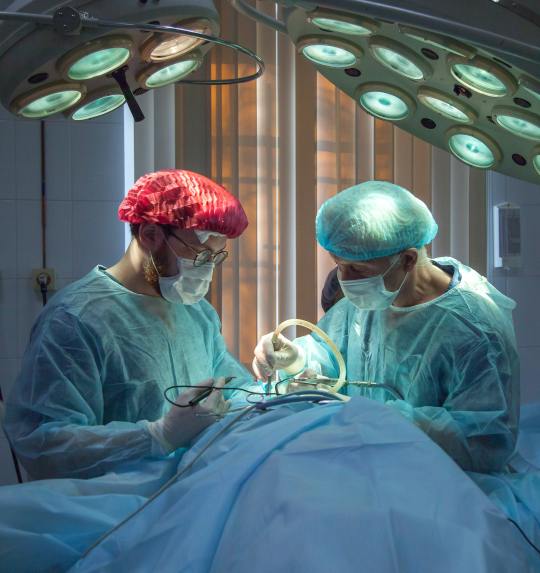
Laparoscopic urology surgery offers many benefits over traditional open surgery, including less pain, shorter hospital stays, and quicker recoveries. In addition, this type of surgery often results in better cosmetic outcomes. If you are considering laparoscopic urology surgery, be sure to discuss all your options with your best urologist in Bhopal to ensure that it is the best treatment option for you.
Different types of laparoscopic urology surgery
Different types of laparoscopic urology surgery include:
1. Laparoscopic Nephrectomy: This is a minimally invasive surgical procedure used to remove one or both kidneys. The surgeon makes small incisions in the lower abdomen and inserts a tiny camera called a laparoscope. The laparoscope allows the surgeon to see inside the abdomen and perform the surgery with small instruments.
2. Laparoscopic Pyeloplasty: This is a minimally invasive surgical procedure used to treat blockages in the urinary system. The surgeon makes small incisions in the lower abdomen and inserts a tiny camera called a laparoscope. The laparoscope allows the surgeon to see inside the abdomen and repair the blockage with small instruments.
3. Laparoscopic Prostatectomy: This is a minimally invasive surgical procedure used to remove the prostate gland. The surgeon makes small incisions in the lower abdomen and inserts a tiny camera called a laparoscope. The laparoscope allows the surgeon to see inside the abdomen and remove the prostate gland with small instruments.
4. Laparoscopic Bladder Surgery: This is a minimally invasive surgical procedure used to treat bladder problems.
If you are considering this type of surgery, be sure to consult with a laparoscopic & nephrologist in bhopal to see if it is right for you.
#Kidney Doctor In Bhopal#Kidney Stone Surgeon Bhopal#Kidney Transplant Bhopal#Kidney Stone Surgeon Near Me Bhopal#Kidney Specialist Bhopal#Nephrologist In Bhopal#Best Urologist Bhopal
0 notes
Text
Kidney Stone Surgery: A Solution to the Painful Problem
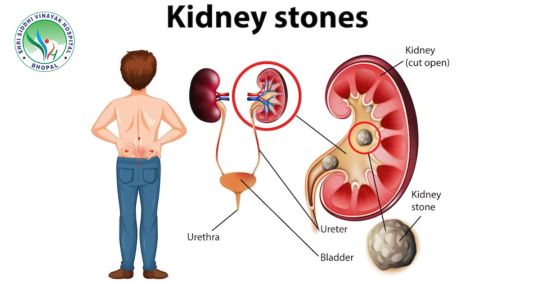
Kidney stones can be excruciatingly painful and can disrupt one's daily life. While many small stones can pass naturally, larger or more complex kidney stones often require medical intervention. In such cases, kidney stone surgery becomes a vital option for relief. Let's explore this surgical procedure in detail.
What is Kidney Stone Surgery?
Kidney stone surgery is a medical procedure designed to remove kidney stones that cannot be passed through natural means. It is typically considered when the rocks are too large to pass, cause severe pain, or lead to complications like urinary tract infections or kidney damage.
Types of Kidney Stone Surgery:
Extracorporeal Shock Wave Lithotripsy (ESWL): ESWL is a non-invasive procedure that uses shock waves to break down kidney stones into smaller fragments, making them easier to pass.
Ureteroscopy: This minimally invasive procedure involves inserting a thin, flexible tube through the urinary tract to reach the stone. The stone can then be removed or broken into smaller pieces using laser technology.
Percutaneous Nephrolithotomy (PCNL): PCNL is a surgical procedure that involves making a small incision in the back to access the kidney directly. The surgeon can then remove or break up the stone through this incision.
Open Surgery: In rare cases where other methods are not feasible, open surgery may be necessary. This involves a larger incision in the abdomen to directly access and remove the kidney stone. So looking for the best kidney stone surgery doctor in Bhopal.
Benefits of Kidney Stone Surgery:
Relieves severe pain and discomfort.
Prevents complications like kidney damage.
Improves overall kidney health.
Facilitates the quick removal of large or stubborn stones.
kidney stone surgery is a crucial option for individuals suffering from large or complicated kidney stone surgery in Bhopal. It relieves pain, prevents potential complications, and helps ensure better kidney health. If you're experiencing symptoms of kidney stones, consult a healthcare professional to determine the most suitable treatment approach, which may include kidney stone surgery when necessary. Don't let kidney stones disrupt your life when effective medical solutions are available.
#urologist in bhopal#best urologist in bhopal#urology specialist in bhopal#uro surgeon in bhopal#best urology specialist in bhopal#best uro surgeon in bhopal
0 notes
Text
What is Endoscopic Stone Surgery? Understanding the Procedure and Benefit
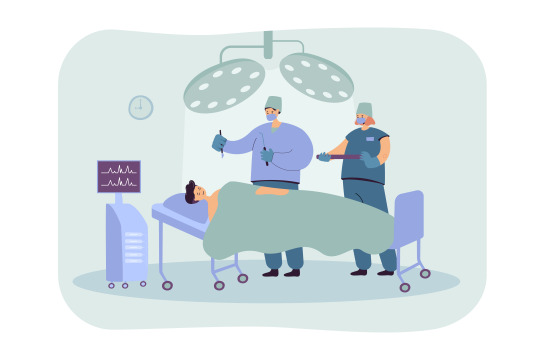
Endoscopic stone surgery is a minimally invasive procedure that is used to remove kidney stones from the urinary tract. Kidney stones are hard mineral deposits that form in the kidneys or bladder and can cause severe pain and discomfort when they pass through the urinary tract. Endoscopic stone surgery is an effective treatment option that can help patients relieve symptoms and prevent complications.
Here are some important facts about endoscopic stone surgery:
Endoscopic stone surgery is typically performed under general anesthesia. Patients are asleep during the procedure and do not experience any pain or discomfort.
The procedure involves inserting a thin, flexible tube with a camera and instruments through the urethra and into the bladder and ureter. The surgeon can then locate the kidney stone and use specialized tools to remove it.
Endoscopic stone surgery can be performed using several techniques, including ureteroscopy, percutaneous nephrolithotomy, and laser lithotripsy. The specific technique used will depend on the size and location of the kidney stone. It is important to see the best urologist in Bhopal
Endoscopic stone surgery is a minimally invasive procedure, which means that it involves small incisions and causes less damage to surrounding tissues compared to open surgery. This can result in less pain, scarring, and a faster recovery time.
Endoscopic stone surgery is a safe and effective treatment option for kidney stones. It has a high success rate, with most patients experiencing complete stone removal and symptom relief.
After endoscopic stone surgery, patients may experience some discomfort or mild pain, which can be managed with pain medication. They will also be instructed to drink plenty of fluids to help flush out any remaining stone fragments.In conclusion, endoscopic stone surgery is a minimally invasive procedure that is used to remove kidney stones from the urinary tract. It is a safe and effective treatment option that can help patients relieve symptoms and prevent complications.
If you are experiencing symptoms of kidney stones, such as severe pain, difficulty urinating, or blood in the urine, for an evaluation. Your doctor can determine the cause of your symptoms and whether endoscopic stone surgery is the right treatment option for you. Consult the best urologist for Endoscopic Stone Surgery in Bhopal.
#endoscopic stone surgery in Indore#endoscopic stone surgery Indore#best endoscopic stone surgery Indore#best endoscopic stone surgery in Indore
0 notes
Text
Kidney Stone Surgeon Near Me Bhopal

Are you searching the best Kidney stone surgeon near you then you are at right destination meet our Kidney stone surgeon Dr. Santosh Agrawal who is the best Kidney stone surgeon in bhopal. Dr. Santosh Agrawal provides a knowledgeable, experienced approach to kidney stone removal. Contact best Urologist Dr. Santosh Agrawal to schedule an appointment at the location nearest you.
0 notes
Text
Kidney Stone Surgeon Bhopal
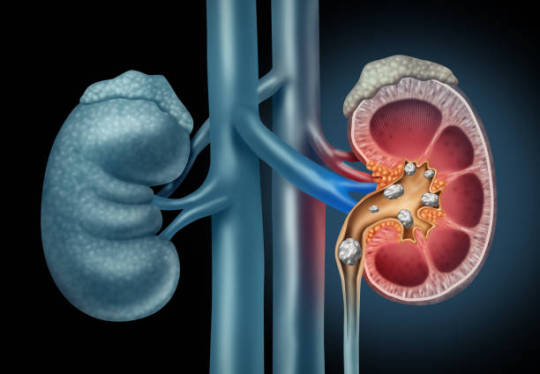
Are you seeking the best Kidney stone surgeon in Bhopal? Dr. Santosh Agrawal is the best urologist and kidney transplant surgeon in Bhopal. He has Experienced more than 10000 endoscopic laser surgeries for kidney stones and prostate disease. Kidney stone surgery is performed to remove the stone from the kidney by the best kidney stone specialist. People suffering through stones related problems are suggested with the surgery. But this surgery is only suggested under the treatment of the best specialties surgeon in Bhopal. Dr. Santosh Agrawal provides the best treatment to remove stones from the kidney.
0 notes
Text
Kidney Transplant Bhopal

Dr. Santosh Agrawal is one of the best kidney transplant doctor in bhopal that provides world-class kidney transplant facilities and perform kidney transplant surgery at an affordable cost.His expertise lies in the treatment of Kidney Transplant, Kidney Stone Treatment,Kidney Failure Treatment. He is the Head of Department and Chief Kidney Transplant Surgeon at Bansal Hospital Bhopal.he is Performed more than 150 Kidney Transplant.This procedure takes a healthy kidney from a deceased or living donor and transplants it into a patient whose kidneys have failed.
0 notes